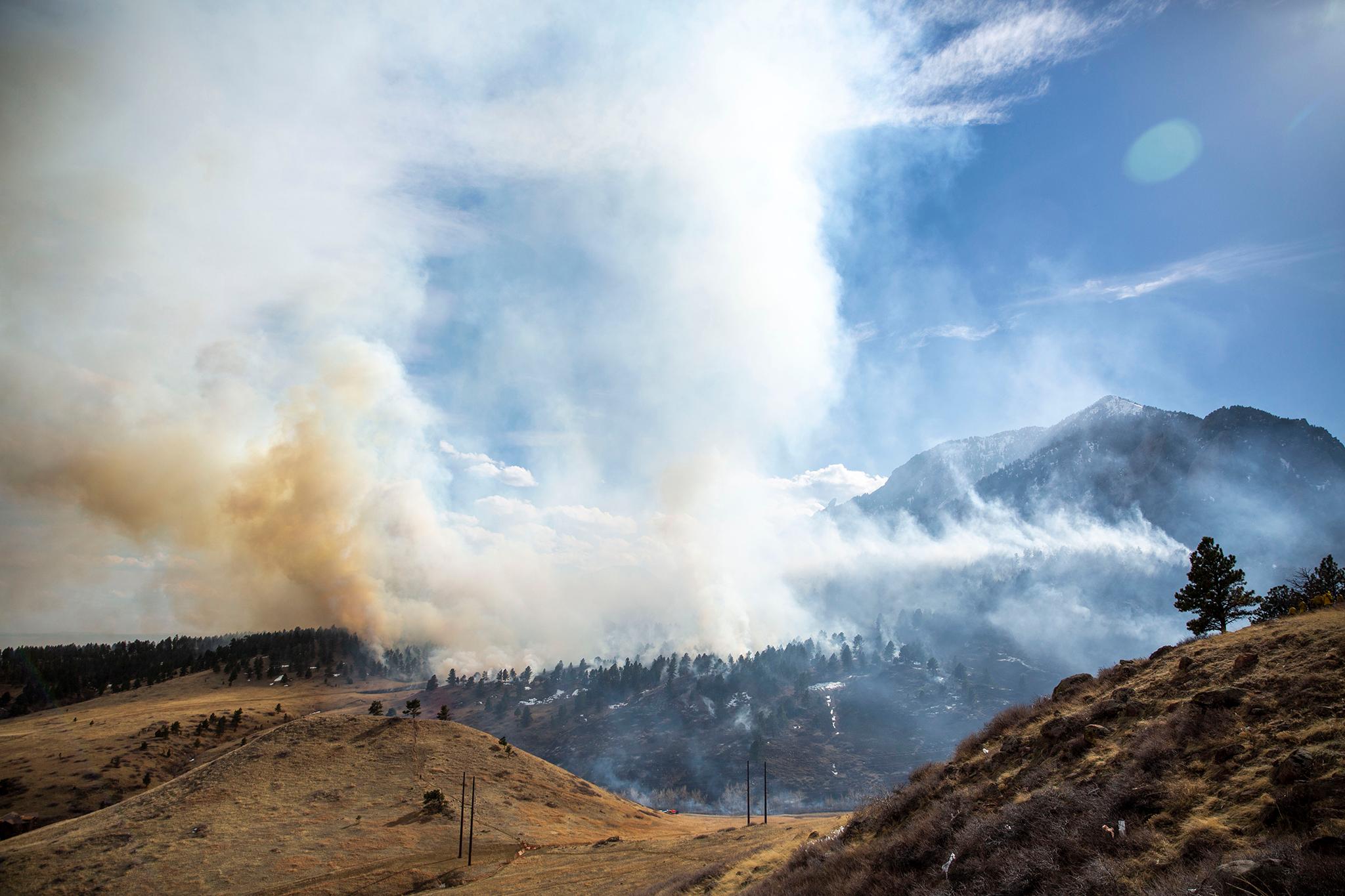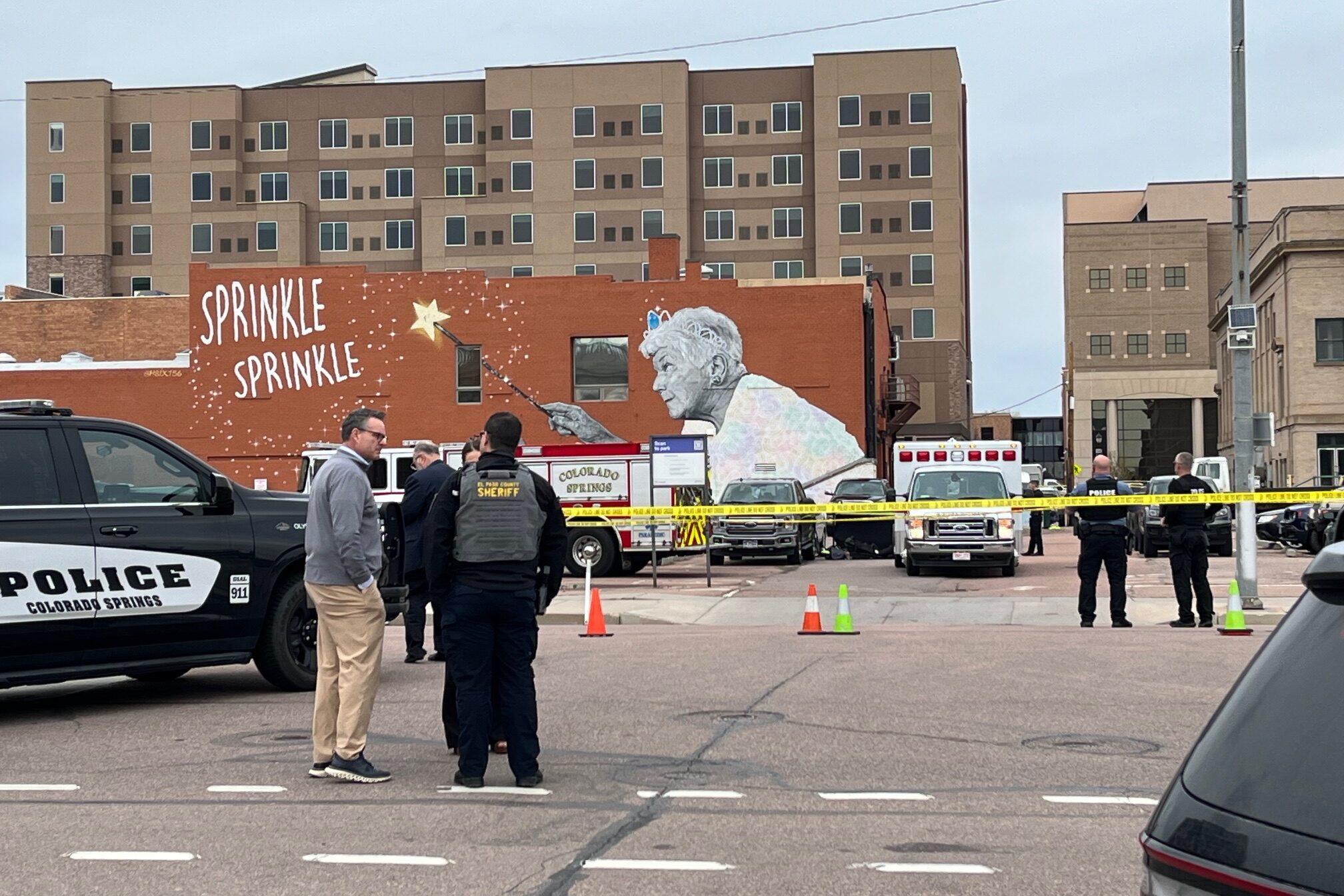
With wildfires and drought becoming increasingly existential problems for Colorado and neighboring states, the House took action Friday, passing a package of nearly 50 bills that Rep. Joe Neguse says “meets the moment for the West.”
Neguse is a lead sponsor on the package, known as the Wildfire Response and Drought Resiliency Act, as well as the author of some of its specific provisions. It passed the House on a nearly party-line vote of 218-199.
“We need to apply a ‘whole of government’ approach to recovery — creating and funding several programs that support community rebuilding and bolster environmental resiliency,” said Neguse at a press conference ahead of the vote. He said the provisions in the bill would do that, as well as make improvements to working conditions for federal wildland firefighters.
Among the provisions in the bill are millions of dollars to help Colorado River reservoirs, Lake Mead and Lake Powell, the establishment of centers to focus on best practices for prescribed burns so that these potentially-destructive mitigations are done right, an increase for the base wildland firefighter pay, and steps to address forest health, such as removing underbrush and dead trees.
Neguse also included several of his own bills in the package, such as the Wildfire Recovery Act, which would help more local communities get the resources needed to recover from wildfires by increasing the federal cost share for the Fire Management Assistance Grants above 75 percent, and the Land Restoration and Resiliency Act, which would set up a community resilience and restoration fund.
Lined up behind the package are some powerful House leaders, including Majority Leader Steny Hoyer. “It behooves all of us in the United States of America to make sure that we deal with the fires and the droughts that are occurring,” he said, singling out the water crisis around the Colorado River, where reservoirs have dropped to critical levels. “That is the proximity of the emergency. This rapidly growing problem demands swift action. This bill, the Wildlife Response and Drought Resiliency Act, is a key part of that response.”
The largely party-line vote, however, reflects Republican concerns about how the package came together. Elements of the bill did not go through the regular committee process, and Democratic leaders did not allow for robust debate on amendments or, Republicans complain, include their suggestions.
While some GOP measures are included in the package, and Republicans agree that something needs to be done now, they said this bill would actually create ways of delaying solutions, such as new wilderness designations that would prevent mechanical thinning in forests.
“Instead of streamlining environmental regulations and addressing frivolous litigation, which delay vital forest management projects across the country, this bill would add mountains of new red tape on our federal agencies that will grind their already glacial pace of treatment to a complete halt,” said Arkansas Rep. Bruce Westerman, who led the debate for Republicans.
There was also disagreement over how the bill would impact firefighter pay. Republicans argued the bill would end up dropping pay for firefighters.
Michelle Hart supports the wildland firefighter pay section of the package. Her husband Tim was a smokejumper who died in 2021 fighting a fire in New Mexico. Neguse and GOP Rep. Liz Cheney named a wildland firefighter bill after him.
With regard to the pay element, she said it’s “about setting a minimum standard above $20 an hour, which still seems very low for the risk that they take on.”
“It would set the starting pay at a higher level that what the starting pay is [now],” she explained, noting that her husband made more money. “So it’s not saying all firefighters need to be at that level, it’s settling a floor so it can’t be below that. And that is an increase in the floor.”
The bipartisan infrastructure law included supplemental funds for wildland firefighters, but this bill looks beyond, to when that money runs out. Without it, Hart fears agencies will go back to their earlier, lower pay levels.
While the Biden administration has come out in support of the package, Neguse acknowledged the bill will face hurdles in the Senate. Some of the measures within the bill have Senate sponsors but not all.
Still, Neguse said it was critical for the House to get the debate rolling.
“It was important for us to set the marker down about what wildfire response and drought resiliency efforts could look like and should look like in terms of meeting the scale of the crisis that faces the American West,” he said.
Even if this package does stall in the Senate, Neguse and other Democrats pointed out there are several other avenues that major elements of the package could pass through, from the government budget bill to a long hoped for Senate public lands bill.
The Congressional Budget Office has not scored the bill, but New Mexico Congresswoman
Teresa Leger Fernández noted states and the federal government already spend hundreds of millions of dollars fighting wildfires.
“So the cost of not doing this is so much more,” she said. “So investing in this bill saves us money in the long term.”









